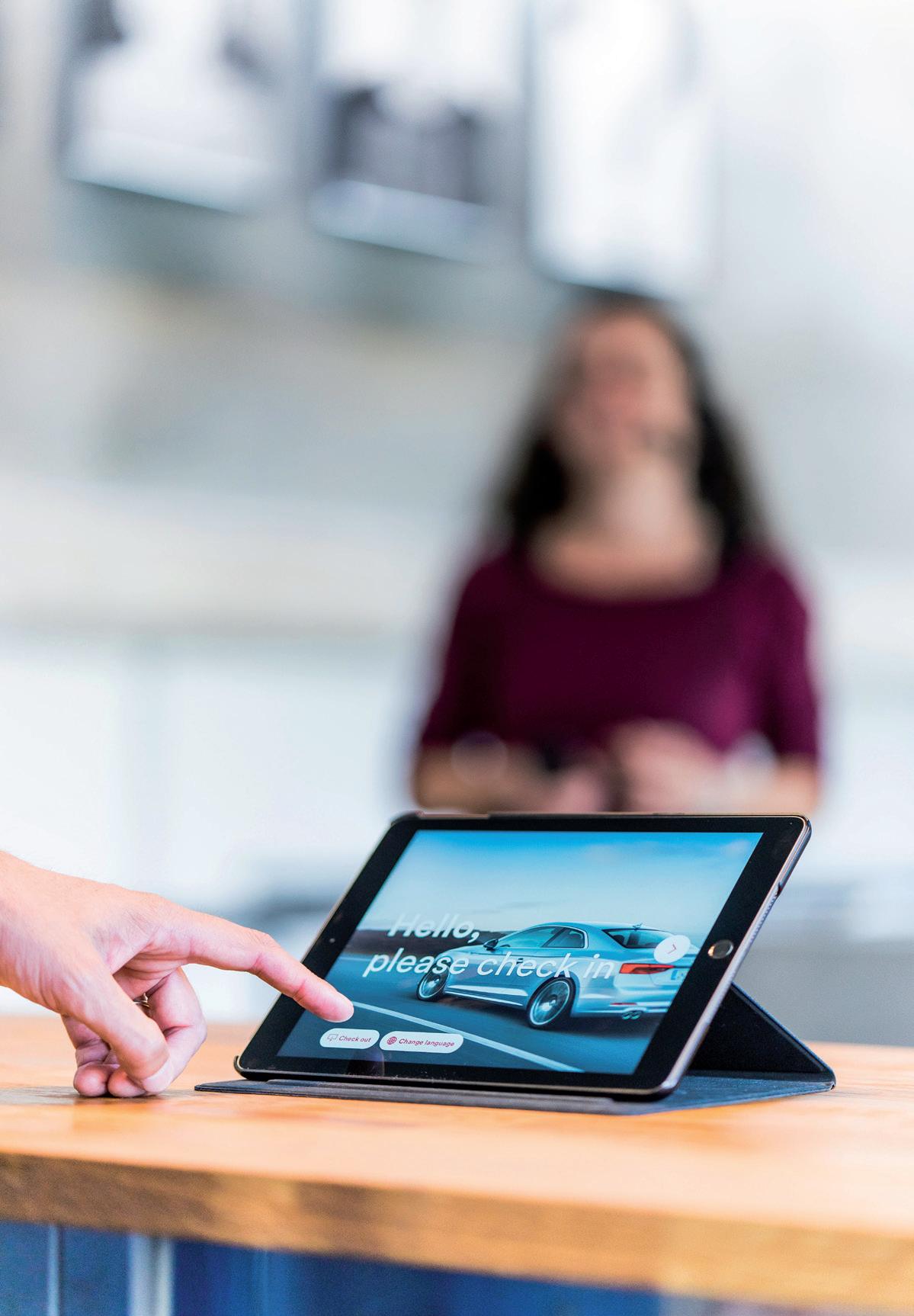
2 minute read
A NEW ERA OF HOTEL MANAGEMENT
The rapid adoption of technology has impacted the hospitality industry, especially in room service and check-in systems. Let’s look at some trends and benefits associated with tech-savvy hotels in these areas.
One of the most important trends is the rise of cashless transactions. With fewer guests carrying cash, hotels have turned to digital tipping apps that allow guests to leave tips via credit card or other digital payment methods, with these apps allowing guests to scan a QR code or go to the platform quickly. Guests can also give feedback to employees by clicking on a link. This simplifies the tipping process and ensures that service employees, such as valets, housekeepers, bartenders and paid hourly employees get tips.
Mobile payments and digital wallets have become increasingly popular among guests, and hotels have adapted to this trend. By integrating mobile payment options and digital wallet capabilities into their systems, hotels offer guests a seamless and convenient payment experience. This aligns with changing consumer preferences and improves transaction speed and security.
Another notable feature is a non-contact zone. As the COVID-19 pandemic accelerated, hotels embraced mobile apps, digital room keys or self-service check-in kiosks to reduce face-to-face contact and simplify hospitality. This technology allows guests quick access while allowing operators to improve efficiency. Hotels have turned to management technology and automation due to labour shortages. Hotels with fewer employees are looking for ways to maintain the same level of guest service. By implementing technologies such as employee management software and equipment automation, hotels can improve inventory quality and streamline operations, thus compensating for staff shortages while ensuring guest satisfaction.
Artificial Intelligence (AI) has also emerged as a powerful tool for hotels. AI-powered hotel industry software offers benefits such as rate recommendations, demand forecasts, personalised offers, and even virtual concierges.
Additionally, cloud computing has revolutionised the hotel industry by replacing traditional on-premise software systems. Cloud-based hotel software allows for greater flexibility, scalability, and accessibility. It enables hotel staff to access information and perform tasks from any location, enhancing operational efficiency and collaboration.
The emergence of new social media platforms and digital marketing channels has opened up new avenues for hotels to connect with guests. By leveraging platforms like TikTok, Snapchat, and emerging social media channels, hotels can showcase their unique offerings, engage with their target audience, and generate brand awareness. Social media marketing allows hotels to reach a wider audience and create personalised experiences that resonate with their guests.
Next-generation hotel management companies and models are redefining the industry. These innovative companies leverage technology and data-driven insights and streamline operations to provide compelling results for hotel owners and guests. They embrace the latest technologies, prioritise guest satisfaction, and utilise data analytics to optimise operations and deliver exceptional experiences.
Mixed-use spaces have gained popularity recently, as hotel groups repurpose lobby or meeting areas into co-working spaces. This trend caters to the evolving needs of modern travellers seeking a blend of work and leisure. Hotels can attract digital nomads, business travellers, and remote workers by offering co-working spaces within the hotel premises, creating a dynamic and versatile environment.
The integration of technology offers numerous benefits for hotels. From cashless tipping and contactless check-ins to AIpowered software and cloud computing, hotels can enhance guest experiences, streamline operations, and stay ahead of the competition. By embracing these trends and leveraging technology effectively, operators can create a seamless and personalised experience for their guests while driving efficiency and revenue growth.










